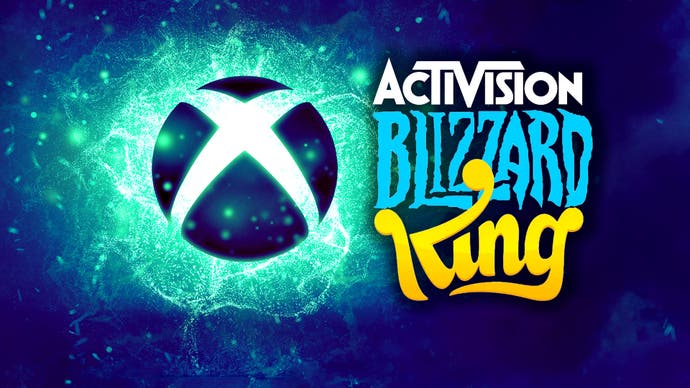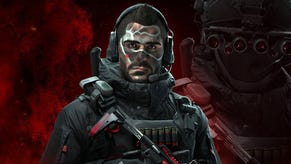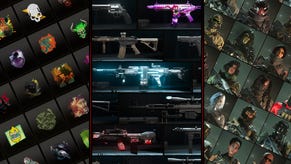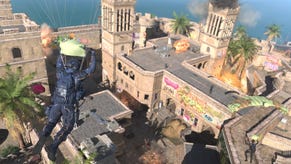Digital Foundry talks Microsoft and Activision with special guest Tom Warren
Plus: can Call of Duty really run on Nintendo Switch?
On the 18th of January 2022, Microsoft announced its plans to acquire Activision Blizzard King, kicking off an enormous process mired in complex, yet often highly entertaining legal proceedings. 546 days later - and counting - we now seem to be approaching the end of this epic. As I write this, the deadline for completing the deal has been shifted to October 18th, but with the FTC's various attempts to stop the acquisition/merger having resulted in failure and the UK's CMA seemingly eager to reach an accommodation, it now seems inevitable that Microsoft will get what it wants.
Looking back, I remember going on holiday just as the initial news was revealed, quickly contacting my colleagues to suggest recording a DF Direct Special on the topic. Today, we're doing it together, albeit with a different line-up! Myself and John Linneman can finally talk at length about the proceedings of the last 18 months, having purposefully distanced ourselves from most of the miniatiae in our standard DF Direct Weekly shows.
And to add an authoritative voice who does actually have a grasp on the detail - unlike ours! - we're thrilled that Tom Warren from The Verge agreed to join us. From my own personal perspective, Tom's Twitter feed and articles on The Verge have been essential reading, not just in delivering the news - but also in explaining what it all actually means.
 DF Direct Special: Microsoft/Activision Acquisition Endgame Discussion ft. Tom Warren From The Verge
DF Direct Special: Microsoft/Activision Acquisition Endgame Discussion ft. Tom Warren From The Verge
And of course, myself and John Linneman have plenty to contribute to the show too. Microsoft has promised to bring Call of Duty to the Nintendo Switch, the firm's headline pitch being to make COD available to over 150 million more players - but to what extent can that strategy actually be realised? The current IW9 engine is a masterpiece of scalability and still delivers a great experience on 10-year-old PlayStation 4 hardware, but it was never designed with Nintendo Switch in mind. Cuts can be made, but would it still be the fully featured Call of Duty game Microsoft promised? Is a COD game still a COD game if, for example, it has to run at 30 frames per second, in line with other Switch 'impossible ports'? Cloud streaming for the PC version remains an option, but the real world utility of this is far from ideal owing to the Switch's sub-par WiFi.
There's also discussion on the nature of the Call of Duty deal with Sony Interactive Entertainment. We know from 'the emails' that initially, Microsoft's Phil Spencer was offering for all current Activision games to remain on PlayStation until 2027. We also know that, remarkably, Sony's Jim Ryan countered by asking for all current and future Activision titles, equal subscription rights and even discussions on Bethesda games returning to PlayStation. Ryan didn't get what he wanted, but is a 10-year Call of Duty deal actually a more favourable outcome? Based on the revenues Sony gets from Call of Duty, we suspect it is.
But what this also means is that contrary to Sony's stated wishes, it's likely that Activision - and therefore Microsoft - will receive a good degree of access to PlayStation 6 development hardware. If Call of Duty is so important to PlayStation gamers, Activision's game-makers will need the kits to work with. In the Direct, John makes the point that console specs tend to be set in stone years ahead of launch - and he's right. However, at the same time, Microsoft access to Sony kit may still prove advantageous. I'm sure Microsoft must be wondering why its investment in much more capable Series X silicon is not resulting in an overall advantage in game performance up against PlayStation 5, for example. Perhaps some degree of 'ring fencing' of development secrets is included in the deal.
Ultimately, Microsoft did achieve a key objective that can only mean good things for the Xbox business. Once existing deals with Sony expire, it seems like there's no reason why Call of Duty will not become a Game Pass title at launch. Right now, it's doubtable whether this could change anything in the current console war - purchases have been made, Sony has consolidated for this ninth generation - but I do wonder whether the landscape may shift for Gen 10. It'll certainly increase subscribers and revenue, and may prove particularly fruitful in Microsoft's attempts to boost its Game Pass subscription base on PC.
On top of that, there seems to be signs of actual good faith between Microsoft and Nvidia, based around the GeForce Now cloud deal - and also another arrangement mentioned in legal documents (the nature of which seems very unclear). If the cloud is ever to become a go-to destination for streamed gameplay, there's no doubt who has the best technology in the market. GeForce Now is streets ahead of xCloud and Stadia and as PC versions of all Xbox games are developed, there's no real need to host console hardware in the cloud any more. The PC versions will do just fine and integrated with Nvidia technology could provide a best in class experience... assuming the mainstream market ever wants it.
The Direct ends with some wishlisting from the panel - of course, we'd love to see Microsoft deliver new games based on some classic Activision IP, or to work with talented studios like Nightdive to properly remaster those titles. But one thing we're all agreed on: the Xbox PC app is astonishingly poor and has to go. And luckily, battle.net is there as the basis to replace it!










